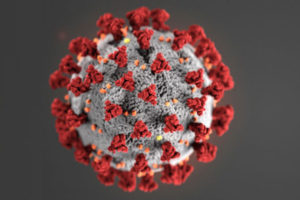Impact of the coronavirus on Ghana’s economy
 The coronavirus pandemic has swept all over the globe in the last couple of months, there is no country that hasn’t been affected by it. While African nations are yet to see as many cases as the rest of the world, the impact on their economies has been severe due to lockdown measures as well as the general economic slowdown all over the world. Ghana is no exception, with measures being taken to reduce the spread of the virus as much as possible affecting economic life in the country.
The coronavirus pandemic has swept all over the globe in the last couple of months, there is no country that hasn’t been affected by it. While African nations are yet to see as many cases as the rest of the world, the impact on their economies has been severe due to lockdown measures as well as the general economic slowdown all over the world. Ghana is no exception, with measures being taken to reduce the spread of the virus as much as possible affecting economic life in the country.
The World Health Organization (WHO) released a set of protocols for countries to follow in order to maintain social distancing and thus ‘flatten the curve’. Adhering to this approach has meant implementing a partial lockdown of the country, with only essential services being allowed. In a country like Ghana, where the economy is largely informal, this is bound to have a severe impact. The government’s revenue from taxes, import duties and other sources is projected to drop quite a bit, while expenditure on healthcare will have to rise. Additionally, the ongoing drop in global oil prices means that there will also be a fall in petroleum revenue for the government. All of this means that the government’s fiscal deficit target of 5 per cent will not be achieved this year. According to the Finance Minister, it is likely to be around 7.8 per cent this year.
While the prices of sanitizers and drugs shot up overnight initially, Ghanaian manufacturers have since then managed to increase their production of these goods, thus stabilising prices. Elsewhere, banks have cut rates across the board by 200 bps, on both existing and new loans, to provide some comfort against the economic shocks being felt at the moment. Discussions are also ongoing with the Bank of Ghana and the Finance Ministry to provide preferential loans to essential sectors such as the pharmaceutical sector.
The three week lockdown has severely hurt those who work on daily wages, as they have no savings to fall back on during these times. Ghanaians across the country have stepped in to try and help such people, by organising supplies, cooked meals and shelter, whether it be through churches or the government itself. The government has also taken certain other steps to alleviate suffering, such as giving free bus rides to healthcare workers, assuming responsibility for water supply across the country for three months, and arranging supplies for remote and deprived communities.
At the same time, businesses and companies which can work from home or online have been largely left unscathed. One of the biggest examples of this is the online gambling and casino market. With physical casinos and gambling locations being shut, real money online casino games have emerged as the only alternative for customers, and thus have shot up in popularity during this pandemic. This is not the only example, with streaming companies and online gaming stores also seeing a sharp rise in engagement and sales as more and more people stay at home.
However, the economic impact of the virus is only beginning to be felt. Businesses with expenses which cannot be deferred, such as interest repayments, rent, and salaries, are in a bad place, with a number of them being forced to shut down or lay off hundreds of employees to stay afloat.
The government needs to come up with a mass random testing scheme to identify cases rapidly and slow down the spread of the virus. This is of utmost importance, as the quicker this is down, the quicker the economy can be opened up and life can go back to some semblance of normality.
